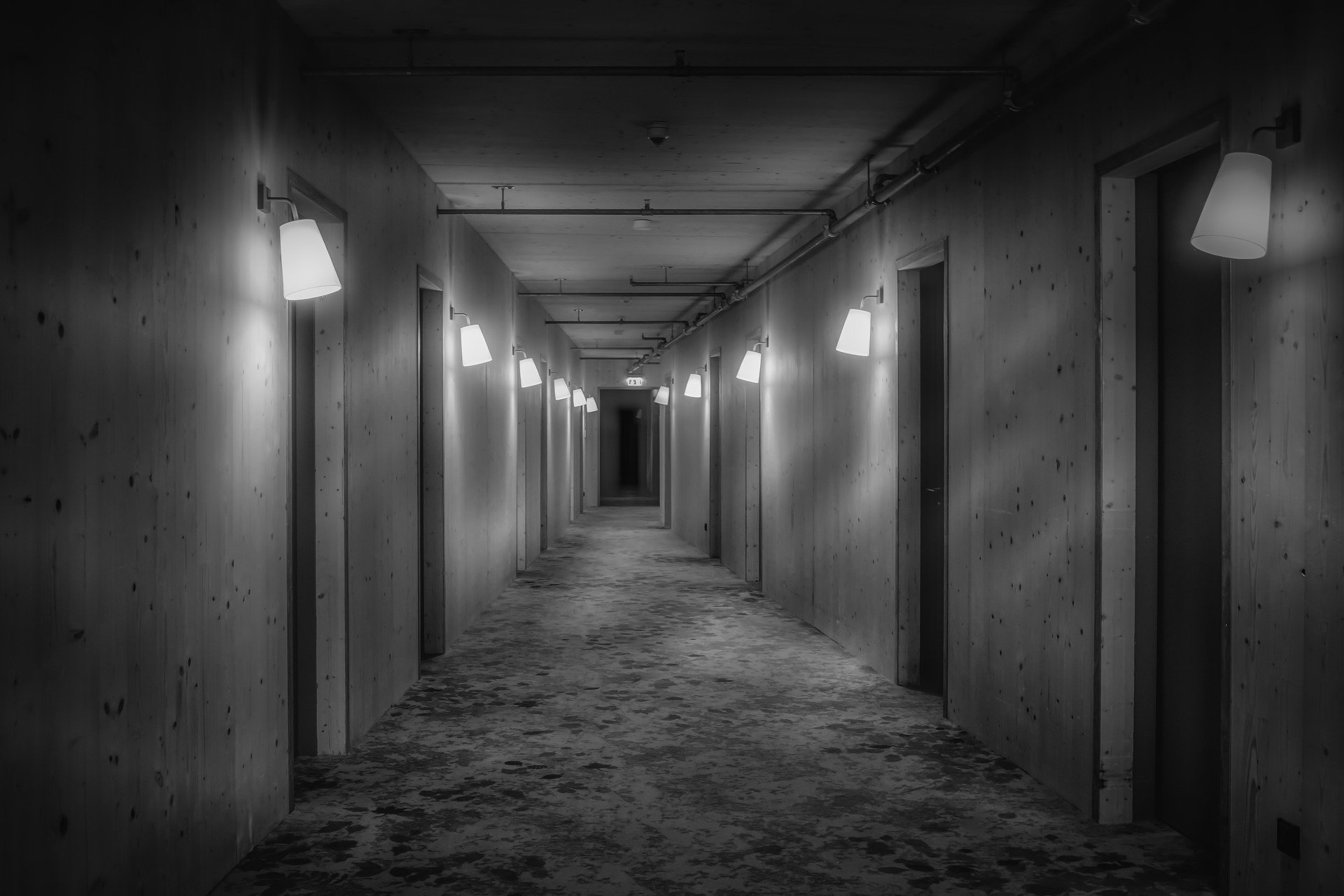Liminal Spaces and Liminal Jobs: The Spaces Between Spaces and the Jobs Between Jobs
I recently took on a part-time job as a sales associate in the technology department of a major office supply retailer, in light of my months-long and still-unsuccessful job search in my professional field as an instructional designer and educational content developer. Those who have known me for a long time know that I put myself through college by working at RadioShack, where I arguably learned to sell ice to an eskimo, along with cell phones, extended service plans, and store credit accounts.
Although I went back to RadioShack for a couple of years when I was a graduate student at UC Santa Cruz to make ends meet, my last time as a sales associate on a retail sales floor was back in 2008, immediately before I joined the Aplia team at Cengage Learning and veered my career away from teaching and retail and toward educational content development and instructional design. And while I have every intention to return to my instructional design career when the right opportunity comes along, I wanted to be productive, to get out of the apartment, and to make at least some money while I continue hunting for the right full-time position in my field. Thus, returning to retail work as a sales associate at this juncture is something of an in-between job for me, a liminal job-between-jobs, analogous to liminal spaces as the space between spaces.
For those who aren’t aware of the term, a liminal space is a kind of in-between space, not a destination in itself but a necessary part of the journey to one’s actual destination. The hallway between a hotel lobby and one’s hotel room is an excellent example of a liminal space (think The Shining), as is the break room at one’s place of business or an airport corridor between the check-in area and the departure gate. Liminal spaces often have an eerily uncomfortable, even a frightening and suspenseful quality to them, perhaps because they lack the grandeur of meaning associated with one’s actual origin or destination; they lack purpose and thus are not fulfilling or meaningful, in and of themselves, in any way. When we are in a liminal space, we fear we have lost our way and that something dreadful is lurking just around the corner.
Above and beyond liminal spaces as literal spaces between spaces, the broader concept of liminality involves transitions of all sorts. Thus there is psychological liminality, religious liminality, and emotional liminality, each of which contains its own kind of awkward discomfort associated with the transition between past and future, between ignorance and enlightenment, between familiarity and unfamiliarity, and between stagnation and growth. The liminal spaces associated with each of these transitions, not in the sense of physical liminal spaces but metaphorical and allegorical ones, are inherently uncomfortable, awkward, and transitory, sometimes with no clear sense of direction or what the eventual outcome of one’s psychological, religious, or emotional journey will be.
I can’t deny that I’ve been in what seems to be a perpetual state of liminality the past few years, from the transition to post-divorce life to an increasing number of job layoffs and career twists, from a physical relocation to a new town to a new relationship and a new home/family life. Yet returning to a part-time retail job this time around seems to have an extra degree of liminality to it, perhaps because of its intentionality. I didn’t particularly need a job right now if I don’t want to have one one; yet, for some reason, I purposefully opted to take a retail job that I know is only temporary, a mere stepping stone, a way to keep myself occupied until I decide what I really want to do when I grow up.
Some aspects of the job are new, and thus unfamiliar and liminal by extension, such as the various aspects of working in a big-box store that I didn’t have to contend with while working at RadioShack (the endless radio traffic between departments, for example). But the liminality of the job really struck me when I was on my lunch break in the break room on my first day of work. For the first time in over a decade, I had a mere lunch break—no deep problems to solve, no creativity to bring to the table, no deadlines to meet, nothing but pure and purposeless lunchtime solitude surrounded by an empty big-box break room, itself perhaps the textbook example of a liminal space par excellence.
In the empty liminal-space break room, I was struck by the contrast between the mental and emotional rest of actual downtime, where I didn't even have to rise to occasion as myself or as the work persona I’ve developed over the years in my professional career, and the obviousness of the fact that I am not the kind of person who can waste away my whole life in a liminal space—or in a liminal job—without having a larger destination in mind for myself: a new mountain to climb, a new experience to have, a new goal to pursue, a new professional or personal challenge to meet. Some people spend their whole lives in these liminal spaces without ever realizing that they are intended to be mere transitions, mistaking the journey for the destination, mistaking the airport hallway for take-off, mistaking the meaninglessness of the liminal space for the actual purpose of life, both those known and those yet to be discovered.
Liminal spaces—particularly the emotional, psychological, spiritual, and even career variety—naturally promote and provide opportunity for existential self-reflection and introspection, at least for those of us with half an ounce of self-reflectivensss about life and its possibilities. And I can’t deny that this retail job, purposefully seen as a liminal job between my last professional job and my next one, is fostering much reflection in me about my next career move, whether it ends up being another instructional designer job or something altogether and intentionally different—such as opening a coffee shop, opening an electronics store, becoming a financial/investment advisor of one variety or another, and so on.
Liminal spaces should force us to think of future possibilities, for while we are in them we see only the bare walls of literal or metaphorical in-between spaces; we don’t yet see the magic and meaningfulness to be found just around the corner of the hallway, through the next barely-open door, or around the next bend of the highway of life. Wherever you are on your own journey of life, don’t mistake the ambiguousness and awkwardness, or the fear, of the in-between spaces of life for the final destination. Keep pushing forward through the liminality—psychological liminality and change, emotional uncertainty and development, spiritual awakening and transformation, endless career changes, or your particular purgatory between your own circumstantial hell and your own future paradise. To do otherwise, to mistake a liminal space for the destination to which it leads, is to stagnate. And stagnation just isn’t how I roll . . . .






